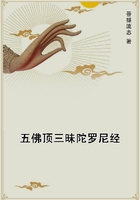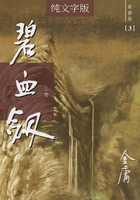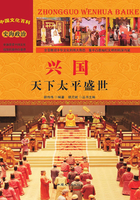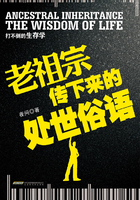Lawlessness culminated in the murder of the editor of the Bulletin, J.King of William, on May 14, 1856, and a vigilance committee was organized to clean up the city, and watch the ballot-box on election day.
Soon the legislature was petitioned to change the charter.The petition recites: "Without a change in the city government which shall diminish the weight of taxation, the city will neither be able to discharge the interest on debts already contracted, nor to meet the demands for current disbursements....The present condition of the streets and public improvements of the city abundantly attest the total inefficiency of the present system."The legislature passed the "Consolidation Act," and from 1856 to 1900 county and city were governed as a political unit.At first the hopes for more frugal government seemed to be fulfilled.But all encouraging symptoms soon vanished.Partizan rule followed, encouraged by the tinkering of the legislature, which imposed on the charter layer upon layer of amendments, dictated by partizan craft, not by local needs.The administrative departments were managed by Boards of Commissioners, under the dictation of "Blind Boss Buckley," who governed his kingdom for many years with the despotic benevolence characteristic of his kind.The citizens saw their money squandered and their public improvements lagging.It took twenty-five years to complete the City Hall, at a cost of $5,500,000.An official of the Citizens' Non-partizan party, in 1895, said: "There is no city in the Union with a quarter of a million people, which would not be the better for a little judicious hanging."The repeated attempts made by citizens of San Francisco to get a new charter finally succeeded, and in 1900 the city hopefully entered a new epoch under a charter of its own making which contained several radical changes.Executive responsibility was centered in the mayor, fortified by a comprehensive civil service.The foundations were laid for municipal ownership of public utilities, and the initiative and referendum were adopted for all public franchises.The legislative power was vested in a board of eighteen supervisors elected at large.
No other American city so dramatically represents the futility of basing political optimism on a mere plan.It was only a step from the mediocrity enthroned by the first election under the new charter to the gross inefficiency and corruption of a new ring, under a new boss.A Grand Jury (called the "Andrews Jury") made a report indicating that the administration was trafficking in favors sold to gamblers, prize-fighters, criminals, and the whole gamut of the underworld; that illegal profits were being reaped from illegal contracts, and that every branch of the executive department was honeycombed with corruption.The Grand Jury believed and said all this, but it lacked the legal proof upon which Mayor Schmitz and his accomplices could be indicted.In spite of this report, Schmitz was reelected in 1905 as the candidate of the Labor-Union party.
Now graft in San Francisco became simply universal.George Kennan, summarizing the practices of the looters, says they "took toll everywhere from everybody and in almost every imaginable way: they went into partnership with dishonest contractors; sold privileges and permits to business men; extorted money from restaurants and saloons; levied assessments on municipal employees; shared the profits of houses of prostitution; forced beer, whiskey, champagne, and cigars on restaurants and saloons on commission; blackmailed gamblers, pool-sellers, and promoters of prize-fights; sold franchises to wealthy corporations; created such municipal bureaus as the commissary department and the city commercial company in order to make robbery of the city more easy; leased rooms and buildings for municipal offices at exorbitant rates, and compelled the lessees to share profits;held up milkmen, kite-advertisers, junk-dealers, and even street-sweepers; and took bribes from everybody who wanted an illegal privilege and was willing to pay for it.The motto of the administration seemed to be 'Encourage dishonesty, and then let no dishonest dollar escape.'"The machinery through which this was effected was simple: the mayor had vast appointing powers and by this means directly controlled all the city departments.But the mayor was only an automaton.Back of him was Abe Ruef, the Boss, an unscrupulous lawyer who had wormed his way into the labor party, and manipulated the "leaders" like puppets.Ruef's game also was elementary.He sold his omnipotence for cash, either under the respectable cloak of "retainer" or under the more common device of commissions and dividends, so that thugs retained him for their freedom, contractors for the favors they expected, and public service corporations for their franchises.
Finally, through the persistence of a few private citizens, a Grand Jury was summoned.Under the foremanship of B.P.Oliver it made a thorough investigation.Francis J.Heney was employed as special prosecutor and William J.Burns as detective.Heney and Burns formed an aggressive team.The Ring proved as vulnerable as it was rotten.Over three hundred indictments were returned, involving persons in every walk of life.Ruef was sentenced to fourteen years in the penitentiary.Schmitz was freed on a technicality, after being found guilty and sentenced to five years.Most of the other indictments were not tried, the prosecutor's attention having been diverted to the trail of the franchise-seekers, who have thus far eluded conviction.















